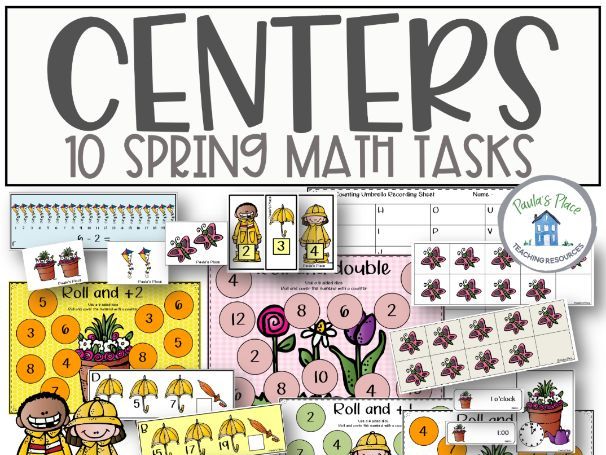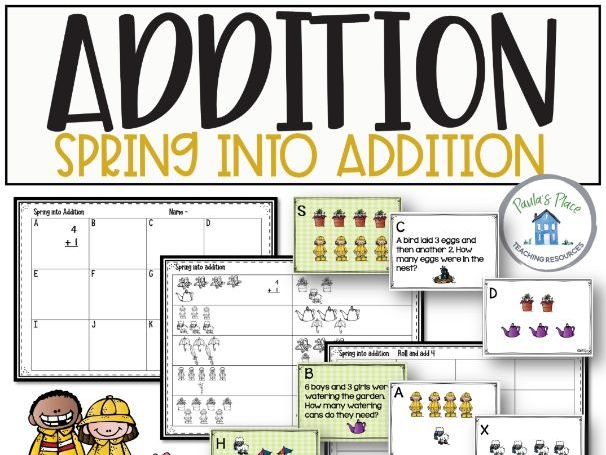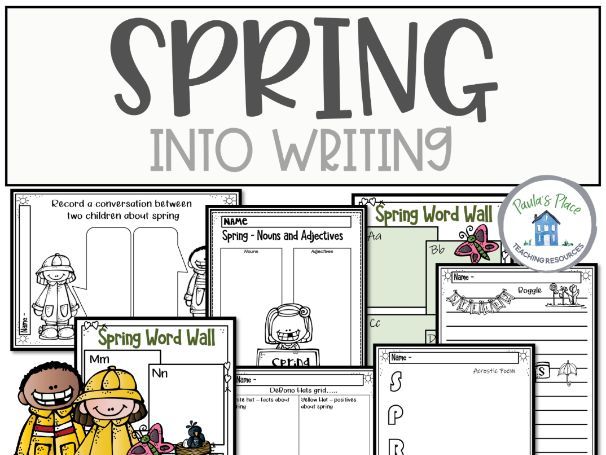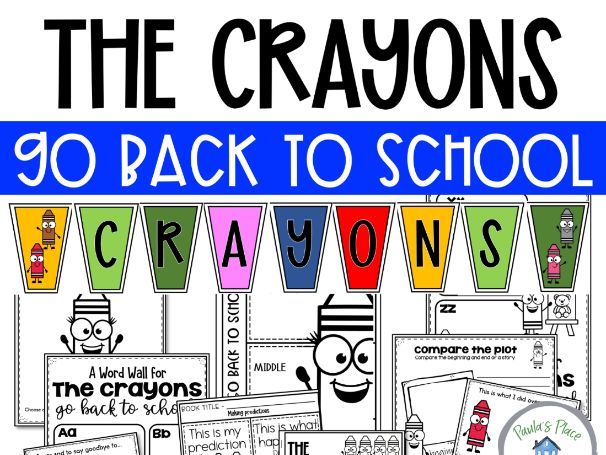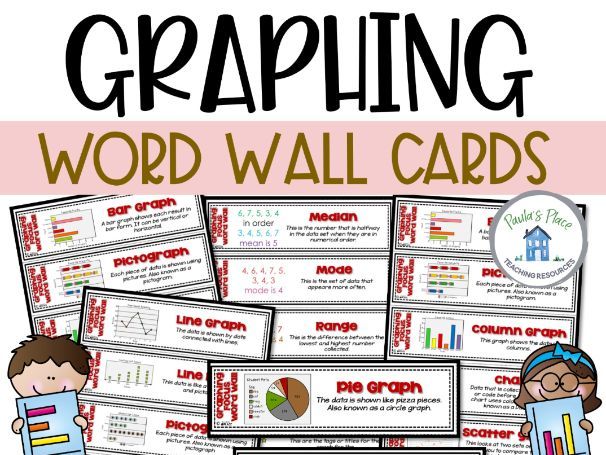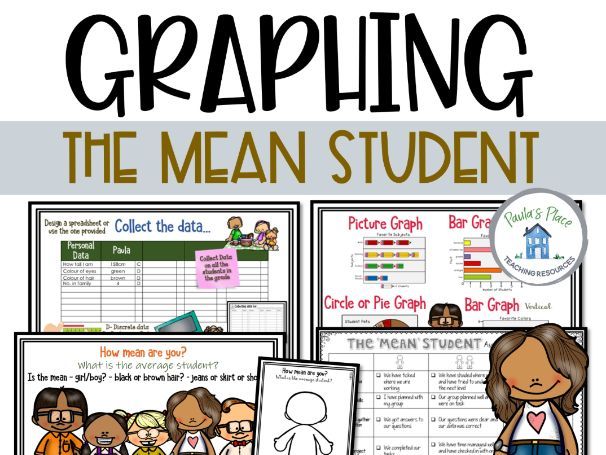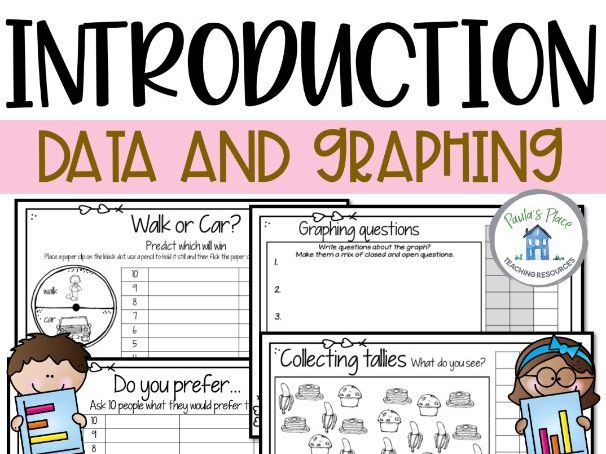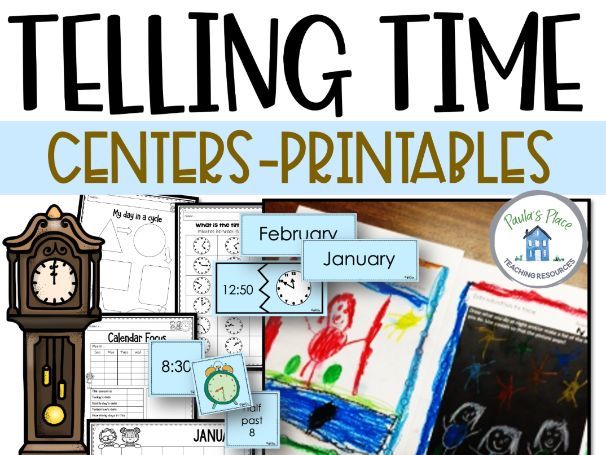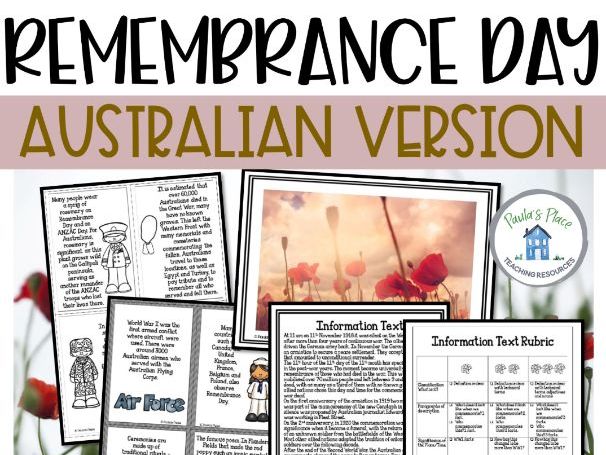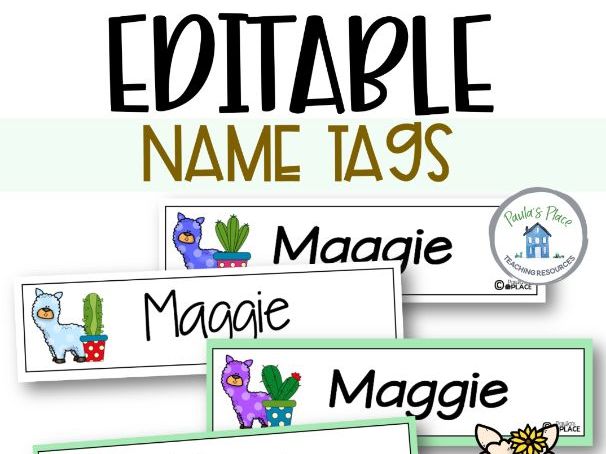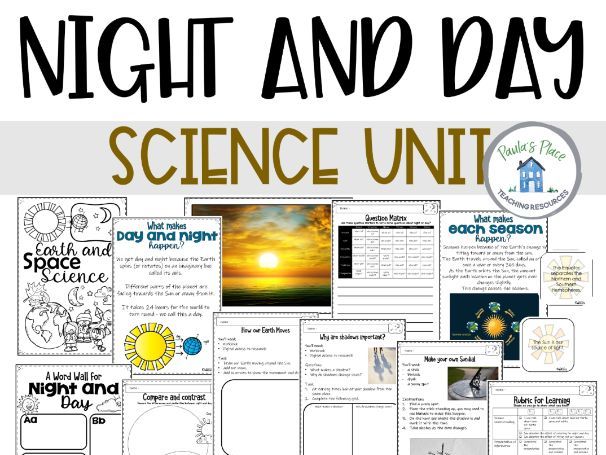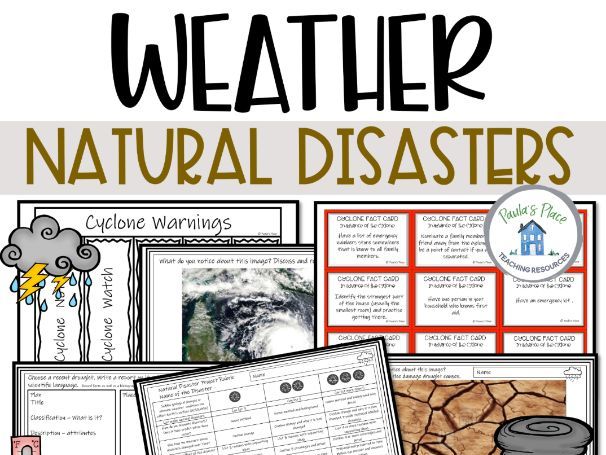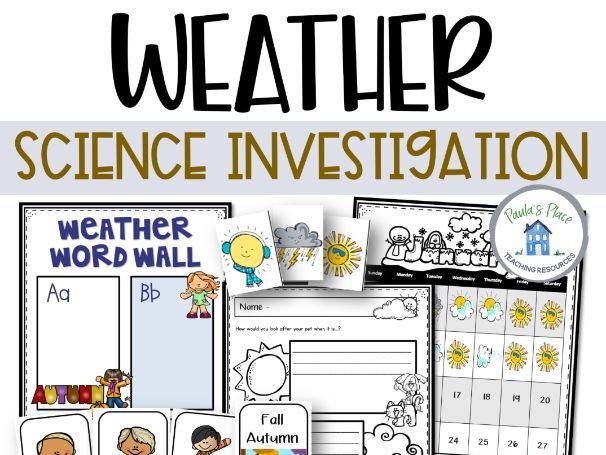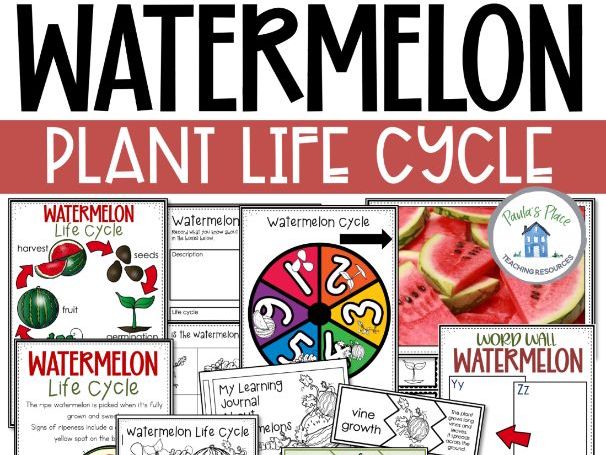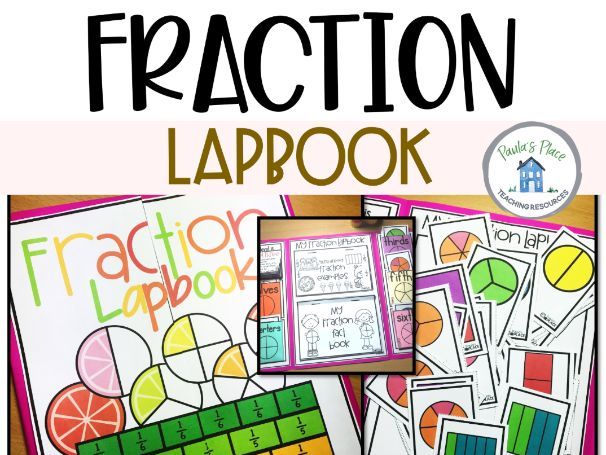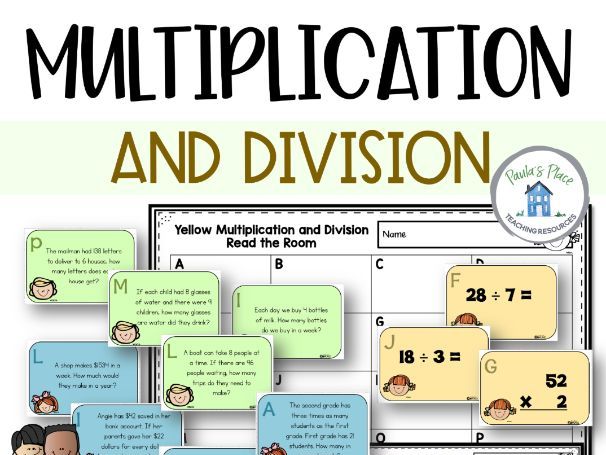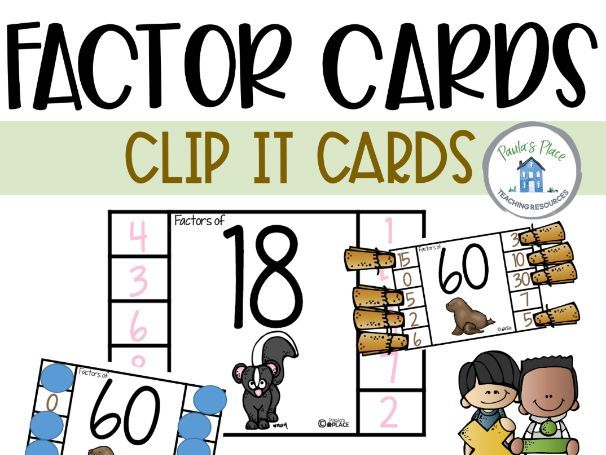243Uploads
22k+Views
328Downloads
All resources

Maths Centres - Spring Theme
Spring Math Centres - Are your students motivated when spring is in the air? These centres will keep them on task and learning. Enjoy watching your students consolidate number sense through these tasks.
Tasks include -
Ten Frames - Colour copy and laminate all the cards - Use as flash cards to trust the count and Subitise. Use to make and record number stories 9 = 5+4 and 5 = 3+2
Eggs needed? Sequence the nests in order of the numerals, then put the number of eggs with the correct collection.
Which hive has more bees? Set one ‚Äď0-20, Set Two ‚Äď0-100. Place the bee in the correct place to show more or less.
Missing Umbrella - Colour copy and laminate the cards. Place the missing umbrella in the correct spot.
Skip Counting Umbrellas - Colour copy and laminate cards A-Z. Display the A-Z cards around the room. Use the recording sheet to write your answer.
Roll and cover - Use a 6 sided dice - roll and cover. There are three additional sets that ask you to +1, +2 and double the number rolled.
Sequence the pots - Each set of pots has a different background to help you sequence in sets of six.
How many kites in the sky? Work out how many kites in the sky? Colour copy and laminate, then display around the room. Read the equations and use the kites like a number line. Record your answer on the answer sheet.
More skip counting. Roll a dice (6-10-12 sided) If you roll a 3, you need three sets of cards. Then you need to work out that 3 x 2 = 6. Model how to skip count by 2’s
Time to water Color copy, and laminate - One set is o’clock - One set is half past - Spread them out and match the correct labels.
Please read the description and download the preview before purchasing. The preview clearly shows you what is included in this pack.
COPYRIGHT ©Paula’s Place
This product is for personal use in one classroom only. To share or use in multiple classrooms, please purchase additional licenses. This product may not be shared or distributed without consent from the author.

Addition to 10 Spring Theme
Addition to 10 Spring Theme - Adding to 10 is an important step in understanding early addition and place value. These cards can be used as Math Centers and small group work.
This pack contains -
Counting two collections together using cards for a Math Center.
Color copy and laminate them for long term use.
They can be used in a small group or as a ‚ÄėRead the Room‚Äô activity.
They can be used as flash cards to help build number sense and subitising.
Use the recording page to record the equations and the answers.
They are available in two printing options.
‚ÄėPrint and Go‚Äô tasks
Record answers for adding collections,
Roll and add 1,
Roll and add 2,
Roll and add 3,
Roll and add 4,
Roll and add 5,
Roll and add 6,
Roll and double using a 20-sided dice for extension
Problem Solving Cards
Use these worded problems to assess your students’ problem solving skills.
Record your answers on the page provided or in your math book.
Please read the description and download the preview before purchasing. The preview clearly shows you what is included in this pack.
COPYRIGHT ©Paula’s Place
This product is for personal use in one classroom only. To share or use in multiple classrooms, please purchase additional licenses. This product may not be shared or distributed without consent from the author.

Spring Writing Pack
This Spring Writing Prompt and printables pack will help your grade record words on a Word Wall to use in spring themed writing tasks. The remaining tasks are for you to choose from to help motivate and challenge your writers.
Writing prompts -
Spring Word Wall ‚Äď brainstorm words and use them in your writing tasks
I know it is spring when….
Words to describe spring ‚Äď you could make a list in an ordered way or a brainstorm the list that has words recorded randomly over the page.
Alphabet Key ‚Äď write words or phrases for spring for each letter
Spring ‚Äď Parts of speech
In Spring I love to
Conversation between two children about spring
Y Chart ‚Äď how it feels/smells/looks
Spring break ‚Äď where do you go?
Spring break ‚Äď My dream place to go?
Top 10 things to do in Spring break
What can we do on a rainy day on spring?
How we feel when we see/smell new flowers?
The best thing about rainy days are….
Planting a seed - procedure
Spring from a butterfly’s viewpoint
Spring from a bird’s viewpoint
Let’s go fly a kite…
The best part about spring is….
Thunderstorms make me….
Acrostic for spring
At the park with my friends
Boggle ‚Äď what words can you make with these letters?
DeBono Hat grid
Extra writing page for those who need more space
Please read the description and download the preview before purchasing. The preview clearly shows you what is included in this pack.
COPYRIGHT ©Paula’s Place
This product is for personal use in one classroom only. To share or use in multiple classrooms, please purchase additional licenses. This product may not be shared or distributed without consent from the author.

The Crayons Go Back to School Book Study
The Crayons Go Back to School ‚Äď Literacy Activities and Printables
Bring The Crayons Go Back to School by Drew Daywalt and Oliver Jeffers to life with this engaging and versatile activity pack! Whether you’re kicking off a new school year or diving into a character-rich book study, these printable tasks help your students connect deeply with the story while building key literacy skills.
Start strong with Pre-Reading Tasks that spark curiosity and prediction skills:
Make thoughtful predictions from the book cover
Explore what might happen next after the first two pages
Record thinking with an interactive flap page
Move on to Vocabulary Building using hands-on strategies:
Create an Alphabet Key to highlight key terms
Set up a vibrant Word Wall
Use an Is-Have-Can chart focused on a crayon
Display a colorful banner
Choose from full or half-page vocabulary templates
Encourage students to reflect and summarise the story with multiple Summary Tools:
Identify and list important facts
Sequence events using Beginning, Middle, End (two differentiated versions)
Use ‚ÄúSomebody, Wanted, But, So, Then‚ÄĚ and timeline strategies like ‚ÄúFirst, Next, Then‚Ķ‚ÄĚ
Write a Recount or find the Main Idea with supporting points
Save time with our Print-and-Go Section, packed with versatile comprehension tasks:
Venn Diagram comparisons
Explore Problems and Solutions or Complications
Compare two characters
Use ‚ÄúI See, I Think, I Wonder‚ÄĚ to dig deeper
Sort facts and opinions using 3-2-1 and other graphic organizers
Try Plus, Minus, Interesting and Text Connections (Text to Self, Text to Text, Text to World)
Analyze how the author keeps readers interested
Pose Interview Questions or design a brand-new book cover
Use Speech Bubbles for character thoughts
Identify the Author’s Purpose
Encourage creativity by writing a sequel, changing the ending, or swapping characters
Write a letter to a character or author
Draw and label a Story Map
Explore core Story Elements
Wrap it up with a Book Report tailored for fiction texts.
This resource supports comprehension, vocabulary, and creative response skills while giving your students multiple ways to explore the text. Teachers love how easy it is to differentiate and how seamlessly it fits into literacy blocks, guided reading sessions, or whole-class read-alouds.
COPYRIGHT © Paula’s Place Teaching Resources
This download is for single-classroom use only. Please purchase additional licenses for use in multiple classrooms or share with other educators only with the author’s permission.

Graphing Word Wall
Graphing ‚Äď Word Wall Cards. This pack contains the following 21 cards for your Word Wall plus 4 spare cards. These cards are 5 to a page to allow you to use space for more cards from other topics as well on your Word Wall.
There is a Word Splash and a KWHL. This is great for adding to over the time of your study on graphs. Use different colors and compare old and new information at the end of the unit of work.
Line Graph
Line Plot
Pictogram
Tally
Pie Graph
Bar Graph
Pictograph
Column Graph
Chart
Scatter Graph
Data
x axis
y axis
Mean
Median
Mode
Range
Data
Labels
Points
Stem and Plot Graphs
Please read the description and download the preview before purchasing. The preview clearly shows you what is included in this pack.
COPYRIGHT ©Paula’s Place
This product is for personal use in one classroom only. To share or use in multiple classrooms, please purchase additional licenses. This product may not be shared or distributed without consent from the author.

Graphing the Mean
Graphing the Mean - Your students will experience a math task that will lead to a group presentation. They will compose questions, collect data, collate data, determine the ‚Äėmean‚Äô, show the data in various graphs and design a poster to present the ‚Äėmean student‚Äô.
Slides include
-What the unit will cover
-How mean are you? What will you be looking for?
-What is the mean?
-How mean are you?
-Template for recording the mean student
-Ideas for recording data
-Group guidelines ‚Äď it‚Äôs your turn
-Types of graphs, and examples to share
Ways to present data
-Collecting proforma ideas
-Extension ‚Äď mean, median and mode
-Discrete or continuous data
-Making comparisons
-A graph can lie…
-Rubric
Please read the description and download the preview before purchasing. The preview clearly shows you what is included in this pack.
COPYRIGHT ©Paula’s Place
This product is for personal use in one classroom only. To share or use in multiple classrooms, please purchase additional licenses. This product may not be shared or distributed without consent from the author.

Graphing - An Introduction
This Graphing ‚Äď An Introduction pack will help build language and skills to create and answer questions about data.
Share the ‚ÄėI Can‚Äô chart and display it in your classroom. Refer to it at the start and conclusion of each lesson as a reflection.
There are two versions available in the zipped file one for USA and non USA spelling options
Model how to complete the graphs and provide the language needed to obtain the answers from 10 children within the grade
As students organize/organise, represent and interpret data up to three categories they need to ask questions about the total number within each group
They need to be asked and have modelled/modelled questions to work out how many more or less in one category more than another
The students can complete the print and go graphs individually or with a partner
Elaborations - posing questions about themselves and familiar objects and events representing responses to questions using simple displays, including grouping students according to their answers using data displays to answer simple questions such as ‚Äėhow many students answered ‚Äúyes‚ÄĚ to having brown hair?‚Äô
Mathematical language: information, data, questions, display, categories, groups, graph, pictograph, bar graph, spinner, chance, answer
COPYRIGHT ©Paula’s Place
This product is for personal use in one classroom only. To share or use in multiple classrooms, please purchase additional licenses. This product may not be shared or distributed without consent from the author.

Telling Time
Time - Telling the time is an important life skill. This pack starts with concepts about night and day, familiar events and the cycle of a day. It leads into tasks for an hour, half hour and time for five minutes.
Tasks include -
Connect days of the week to familiar events.
Introduction to time. Copy one for each child. Record what you do in the day and at night. Use pastels on the black one for night.
Differentiate between am and pm. Brainstorm as a grade what we do in the am and the pm, and then children record.
My Day in a cycle. Copy onto A3. This is to help establish that our day is a cycle and that each day starts with getting up and ends with going to bed.
This is my week. Copy onto A4 and use to consolidate what we do in a week.
My Weekly Journal. Photocopy and use one page for a week. You may wish to continue for longer than a week. Complete an entry for each day. On Monday, complete the weekend.
Cards to sequence the days of the week ‚Äď copy onto coloured paper or card and laminate.
Describe duration using months, weeks, days and hours.
Sequencing cards for months of the year. Copy onto coloured paper or card and laminate. Use season tags (colour copy and laminate) to order the seasons and assign the correct months of the year.
Roll and record days of the week. Copy one for each child.
Roll and record months of the year. Copy one for each child.
Sequence days of the week and months of the year. Copy and students cut and sequence. Collect for assessment.
Use subject cards ‚Äď colour copy and laminat,e and outline what you do in a day. Attach to your board as an agenda for the day.
Calendar ‚Äď print on colour and add information as a grade or in small groups.
Use a calendar to identify dates, days and number of days in a month. Copy on A3 in colour. Use these calendars to record important dates for your grade. In small group,s add the days across the top and then the dates. Use in a focus math group to ensure that the process is correct.
Tell time to the hour, half hour and five minutes. Make a clock. Copy onto card and cut the hands out. Use a split pin to attach the hands so that they move. In pairs make times and say the time on the clock. Copy the sheet, one for each student and draw a clock Write down what we use a clock for and what you know about telling time.
Match analogue clocks to time and digital time. Copy onto colored paper or card and laminate, 4 sets
Jigsaws ‚Äď copy onto colored paper or card and laminate. Match digital time to an analogue clock.
Tell time using Analogue and Digital time and use am and pm.
Record how many minutes it would take to do certain tasks.
COPYRIGHT ©Paula’s Place
This product is for personal use in one classroom only. To share or use in multiple classrooms, please purchase additional licenses. This product may not be shared or distributed without consent from the author.

Remembrance Day Information Pack
Remembrance Day Information Pack ‚Äď Teach, Inspire, and Write with Purpose
Looking for a comprehensive and engaging way to teach Remembrance Day in your Australian classroom? This Remembrance Day Information Pack gives you everything you need to support your students as they explore the meaning behind this important day and write their own Information Texts. Packed with 51 purposeful pages, this resource offers a perfect blend of reading, writing, and critical thinking tasks‚ÄĒall aligned with the Australian curriculum.
Here’s what you’ll find inside:
KWHL Chart Templates
(in colour and black/white):
Start your unit with a KWHL chart to activate prior knowledge, spark curiosity, and track new learning. This visual organiser will guide your students step-by-step as they prepare to write their informative pieces.
Fact Cards:
Use these as powerful discussion starters or display them in your classroom. Each card presents an important fact about Remembrance Day, ideal for building paragraphs or generating ideas for the writing process.
Photo Prompts:
Bring history to life with a collection of powerful images. These visual prompts help students make deeper connections, generate ideas, and enhance their information texts. Display them around the classroom to inspire writing and create a respectful learning atmosphere.
Reading Tasks:
Guide students to identify main ideas and supporting details. Then, take their understanding even further by asking them to paraphrase the information in their own words, strengthening both comprehension and writing skills.
Writing Prompts and Planners:
Use the included photos and writing prompts to help students develop strong, structured information texts. The planning pages, rubric, and various writing paper options make the writing process clear, scaffolded, and assessable.
This pack is more than just worksheets‚ÄĒit‚Äôs a complete learning sequence that supports respectful reflection and high-quality writing. Whether you‚Äôre planning a whole-class writing unit or integrating Remembrance Day into your literacy program, this resource saves you time and delivers meaningful impact.
Before You Buy:
Please read the full description and preview before purchasing. The preview clearly outlines everything included in the pack so you can feel confident about your purchase.
51ļŕŃŌ Notice:
This resource is for personal classroom use only. If you intend to use it in multiple classrooms, please purchase additional licenses. Redistribution or digital sharing without permission is strictly prohibited.
Remembrance Day classroom pack, teaching Remembrance Day, Australian history resources, November 11 school activities, information text writing unit, KWHL charts for history, photo prompts for writing, Remembrance Day literacy tasks, Australian primary teaching resources, meaningful writing prompts for kids.

Editable Name Tags
Editable Llama Name Tags ‚Äď Brighten Up Your Classroom in Style!
Searching for editable name tags that instantly add charm and colour to your classroom setup? Look no further! These adorable Llama and cacti themed name tags will transform your learning space into a vibrant and welcoming environment. With their fun and cheerful design, they’re the perfect way to personalise your classroom while keeping things organised.
What’s Included and How to Use:
Easily type each student’s name directly into the template.
Choose your favourite font ‚Äď we love using KG A Teeny Tiny Font and KG I Need A Font (both free for personal use).
Open the PowerPoint file and simply replace the ‚Äúadd text‚ÄĚ area with your custom names.
Adjust the font style and size to fit perfectly.
Print in full colour, laminate for durability, and place them on tables, bag cubbies, lockers, or any spot where name tags are needed.
This pack is fully editable, so you have the freedom to match your classroom style while staying organised. It‚Äôs a super simple way to give your space a cohesive and eye-catching look ‚Äď and your students will love seeing their names displayed with these playful llamas and cacti!
Before You Buy:
Make sure to read the full description and download the preview to see exactly what’s included in this pack. The preview gives you a clear look at the product so you know exactly what to expect.
Important Licensing Note:
This resource is for personal classroom use only. If you plan to use it across multiple classrooms or wish to share it, please purchase additional licenses. Redistribution or resale is strictly prohibited.
Add some llama-loving fun to your classroom today and get organised with flair!
Editable Llama Name Tags

Day and Night Science Unit
Day and Night Science Inquiry with Our Engaging Inquiry-Based Unit!
With explicit teacher notes, printable activities, and step-by-step inquiry guidance, this unit supports students as they observe, question, and explain the science behind day and night.
What’s Included in This Science Unit?
The Big So What? ‚Äď Introduce the big ideas and why this topic matters
Key Understandings ‚Äď Clearly outline learning intentions
Skill Development ‚Äď Focus on science skills and critical thinking
Inquiry Questions ‚Äď Spark curiosity and guide exploration
e5 Inquiry Model ‚Äď Engage, Explore, Explain, Elaborate, Evaluate
Engage ‚Äď What Is Day and Night?
Start strong by defining day and night and prompting discussion using real-life photos.
Complete a KWHL chart to track prior knowledge and generate wonderings
Build a themed word wall to boost vocabulary
Use the included rubric to make learning expectations visible
Add engaging A‚ÄďZ Key activities into students‚Äô STEAM books
Create personalised word lists for theme-based spelling and writing
Explore ‚Äď Understanding Earth‚Äôs Axis
Now dig deeper into Earth’s movement and how it creates day and night:
Record differences with a Venn Diagram
Draw how the Earth spins and explain its motion
Investigate the role of shadows and why they change
Create and test a simple sundial to track time outdoors
Explain ‚Äď Night, Day, and the Seasons
Encourage students to reflect on their learning so far:
Discuss discoveries from the Engage section
Share Night and Day and Seasons posters (colour and B&W)
Revisit and update their KWHL wonderings
Empower students to explain day and night and the reasons for the seasons in their own words
Elaborate ‚Äď Our Earth‚Äôs Orbit and Daily Life
Extend the learning by connecting it to real life:
Compare what we do during the day vs. night
Investigate diurnal and nocturnal animals
Use a Question Matrix to develop new inquiry questions
Evaluate and Celebrate ‚Äď Share What You Know!
Wrap up with a celebration of learning:
Design a model or poster to demonstrate understanding
Reflect with a self-assessment and personal learning review
Host a classroom exhibition to showcase projects and spark discussion
Why Teachers Love This Pack:
Aligned with science curriculum outcomes
Builds science vocabulary and writing connections
Supports independent and group inquiry
Easy to print, prep, and implement
Suitable for STEAM and cross-curricular learning
Themes: Day and Night | Seasons | Earth’s Rotation | Inquiry Learning | Shadows | Time | Animals | Observation
Please Note:
This resource is for personal use in one classroom only. If you plan to share or use it across multiple classrooms, please purchase additional licenses. Do not copy or redistribute this product without written consent from the author.
Ready to bring the science of day and night to life in your classroom?
Download the Day and Night Inquiry Unit from Paula’s Place Teaching Resources today and watch your students shine!

Natural Disasters and Extreme Weather
Natural Disasters and Extreme Weather Research Pack ‚Äď Build Critical Thinking and Scientific Inquiry!
Unleash your students’ curiosity and empower them to explore how our planet responds in extreme and unpredictable ways with our Natural Disasters and Extreme Weather Research Pack. This comprehensive resource invites students to investigate real-world events, deepen their understanding of Earth’s powerful forces, and apply their learning through structured, scaffolded research activities.
Key Natural Disasters and Extreme Weather Events Covered:
Cyclones
Earthquakes
Tsunamis
Droughts
Floods
Fires
Whether you’re focusing on one event or comparing multiple disasters, your students will gain insights into both natural processes and human responses.
Each Section Includes:
KWHL Chart ‚Äď Activate prior knowledge and set learning goals
Alphabet Key ‚Äď Expand vocabulary and spark new questions
Venn Diagram ‚Äď Compare and contrast disaster types or impacts
Before / During / After Flap Page ‚Äď Organise information and understand sequences
Data Exploration ‚Äď Can we measure this disaster? How? Why does it matter?
Disaster Management Plan ‚Äď Think critically about how communities prepare and respond
Interactive Notebook Flaps (INB) ‚Äď Breakdown:
What is it?
What are the environmental effects?
Are / Have / Can Chart ‚Äď Summarise features of each disaster
3-2-1 Response Organiser ‚Äď Reflect with facts, questions, and key takeaways
I See ‚Äď I Think ‚Äď I Wonder ‚Äď Promote observation and inference skills
Note-Taking Pages ‚Äď Encourage effective research habits
Image Analysis Template ‚Äď Collect and annotate images with a purpose
Mapping Task ‚Äď Locate where disasters occur globally
Some disaster sections include bonus activities and templates tailored to the event type!
Assessment Made Easy
A clear and student-friendly rubric is included to guide expectations and provide meaningful feedback. Share it with your students upfront so they know how to aim high with their research.
For even deeper exploration, check out our popular Water Information Pack‚ÄĒperfect for understanding floods, droughts, and the importance of water in environmental science.
This resource is perfect for:
Inquiry-based learning
Earth and space science units
Geography and environmental studies
Literacy integration through research and reporting
STEM and cross-curricular projects
Please Note:
This product is for personal classroom use only. To share it with others or use it across multiple classrooms, please purchase additional licenses. Unauthorised distribution or copying is not permitted.
Be sure to download the preview for a detailed look at what’s included. You’ll see exactly how this resource supports meaningful research, critical thinking, and student-led learning.
Ready to help your students become informed, empathetic, and curious global citizens?
Download the Natural Disasters and Extreme Weather Research Pack from Paula’s Place today!

Weather Science Unit
Weather Science Unit - Explore Daily and Seasonal Weather Patterns with Our Engaging Weather Unit!
Looking for a comprehensive and hands-on way to teach weather in your classroom? Discover our Weather Pack‚ÄĒthe perfect resource to help your students observe, record, and respond to daily and seasonal weather changes. This highly visual and interactive unit encourages students to explore how weather impacts our daily lives, including how we dress, play, and care for animals in changing conditions.
From building vocabulary to collecting data and developing inquiry skills, this weather unit covers it all. Plus, with activities suited for both the Northern and Southern Hemispheres, it’s flexible and ready to go, no matter where you teach.
Here’s What’s Included in the Weather Pack:
Weather Word Wall Posters
Kick off your unit by brainstorming with your class and building a themed word wall. Add new vocabulary throughout the unit to reinforce language and understanding.
Printable Word Wall Cards
Use these versatile cards to boost writing tasks, encourage discussion, and enhance vocabulary development related to weather, seasons, and climate.
Print-and-Go Worksheets
Record descriptive weather words
Use the Weather Alphabet Key
Complete ‚ÄúSee, Think, Wonder‚ÄĚ reflections
Fill in Fact Charts and 3-2-1 Facts
Share Opinions and Ask Questions
Write about your favourite weather
Discuss what happens ‚ÄúDuring each season‚Ķ‚ÄĚ or ‚ÄúIf the weather changes‚Ķ‚ÄĚ
Explore how to care for pets in different weather conditions
Weather and Season Matching Cards
Match weather images to the correct season, then talk with a buddy about what to wear and why. Use the blank template to add your own scenarios!
Monthly Weather Tracker
Observe and record daily weather across a full month. Use classroom charts to tally results, generate graphs, and create data-driven questions and answers. Choose from both Southern and Northern Hemisphere calendar formats for easy alignment.
Make It Rain in a Jar Experiment
Bring science to life with this hands-on weather experiment. Includes clear instructions and a student recording sheet to document observations.
Assessment Checklist
Track learning outcomes and student progress with an easy-to-use checklist, aligned to the key objectives of your weather unit.
Please Note:
This resource is for personal classroom use only. If you’d like to share it with colleagues or use it across multiple classrooms, please purchase additional licenses. Copying or distributing this product without permission is not permitted.
Ready to help your students understand and respond to the ever-changing world around them?
Grab your Weather Pack from Paula’s Place Teaching Resources today and make every day a weather day!

Watermelon Life Cycle
Life Cycle of Watermelons - Explore this Topic with This Engaging, Curriculum-Aligned Resource!
Dive into an exciting learning adventure with this comprehensive Watermelon Life Cycle Pack, this resource provides everything you need to explicitly teach key science concepts while developing vocabulary, sequencing skills, and report writing.
Inside this pack, you’ll find clearly structured sections, each featuring an easy-to-follow instruction page. Transition smoothly from one concept to the next with:
Word Wall Cards and Vocabulary Posters ‚Äď Reinforce terminology and spark meaningful discussions.
Learning Journal Pages ‚Äď Keep students engaged and accountable with personal records of their learning journey.
Full-Colour and Black & White Posters ‚Äď Display each stage of the spider and watermelon life cycle with ready-to-print options.
Printable Readers ‚Äď Simply print and go! These mini-books make content accessible and enjoyable.
Jigsaw Task ‚Äď Improve vocabulary while building sequencing skills in a hands-on way.
Interactive Print-and-Go Activities ‚Äď Explore the Watermelon Plant Cycle, investigate ‚ÄúWhat Do Watermelons Need to Grow?‚ÄĚ, compare fruits using a Venn Diagram, and sequence the life cycle events in logical order.
Information Report Templates and Visual Prompts ‚Äď Use the included photo prompts to inspire writing, enhance oral language, and build rich vocabulary.
From science displays to literacy centres, this resource supports multiple learning goals and works beautifully across a range of ability levels. Whether you’re teaching life cycles, report writing, or vocabulary development, this pack ensures your students remain engaged, informed, and inspired every step of the way.
COPYRIGHT © Paula’s Place Teaching Resources
This resource is for single-classroom use only. Please purchase additional licenses for multiple classrooms. Redistribution or sharing without permission is prohibited.

Silent Letters Resource Pack
Silent Letters Resource Pack: Teach Tricky Spellings with Engaging, Hands-On Activities
Silent Letter Posters
Start with visuals!
Print and display these eye-catching posters to introduce and reinforce silent letter patterns. Use them during whole-class instruction or in small groups for targeted practice. These posters make silent letters visible, memorable, and easy to reference during reading and writing tasks.
Silent Letter Vocabulary Cards
Take learning further with versatile vocabulary cards.
Use them to model correct pronunciation, sort words by silent letter pattern, or create engaging displays. Students will love using these cards for hands-on sorting activities, while you can easily repurpose them as writing prompts or centre activities.
Silent Letter Sorting Activity
Make spelling fun with this colourful sorting game!
Available in full colour and black-and-white.
Silent Letter Jigsaw Puzzles
Next, reinforce recognition with this interactive jigsaw task.
Print in colour and laminate for durability. Then cut each jigsaw into two parts. Students will match word pieces by connecting silent letters to their words. This puzzle format makes spelling practice feel like play, while still developing essential phonics awareness.
Interactive Notebook Pages
Finish strong with cut-and-glue note pages for each student.
These interactive templates require students to cut along the lines, glue into their notebooks, and rewrite the word underneath, circling the silent letter. This personal engagement supports both visual and kinesthetic learning, ensuring deeper retention.
Words Included in the Pack
You’ll cover the most common silent letter patterns with high-frequency words across multiple levels:
Silent B ‚Äď comb, lamb, thumb, plumber, bomb, climb
Silent C ‚Äď descend, muscle, crescent, scent, scissors, scene
Silent D ‚Äď edge, handsome, hedge, handkerchief, wedge, badge
Silent G ‚Äď gnome, gnarl, sign, design, gnat, foreign
Silent H ‚Äď ghost, what, white, hour, which, rhythm
Silent K ‚Äď knot, knee, knit, knock, knead, knight
Silent L ‚Äď calf, stalk, half, salmon, yolk, palm
Silent P ‚Äď psychic, cupboard, psychedelic, receipt, raspberry, psychiatrist
Silent T ‚Äď witch, castle, butcher, watch, listen, match
Silent W ‚Äď wrench, wrap, wring, write, wreath, wrist
Designed for Classroom Success
Whether you’re running a literacy centre, guiding small-group intervention, or conducting whole-class instruction, this Silent Letter Pack supports explicit teaching, independent practice, and collaborative learning. Transition easily between activities and watch your students become more confident, capable spellers.
Licensing and 51ļŕŃŌ
51ļŕŃŌ ¬© Paula‚Äôs Place
This resource is for single-classroom use only. To share across multiple classrooms, please purchase the appropriate number of licenses. Redistribution in any form without the author’s consent is prohibited.

Fraction Lapbook
Fraction Lapbook Activity Pack | Hands-On Fraction Learning for Grades 2‚Äď5
Make fractions meaningful and fun with this interactive Fraction Lapbook Pack, perfect for hands-on learning in Grades 2‚Äď5. Students will explore and build a deep understanding of halves, thirds, quarters (fourths), fifths, sixths, and wholes as they create a vibrant lapbook to share with peers and families. This engaging project supports differentiated learning goals, promotes student ownership, and makes learning visible‚ÄĒideal for student-led conferences or portfolio displays.
What’s Inside:
Easy Assembly Instructions with Visuals
Put the lapbook together with confidence using the step-by-step guide and full-colour photos. You’ll also find a layout template that shows exactly where to place each component. Choose between colour and black/white versions to suit your printing needs.
Levelled Learning Goals
Set clear targets with Level One, Two, and Three learning goals that support students at different levels of understanding. These goals help guide your instruction and let students track their progress.
Sorting Pockets & Fraction Cards
Students can sort and classify fraction cards using interactive pocket templates. The pack includes cards in both colour and black/white, making it easy to differentiate or prep for multiple learners.
Fraction Fact Booklet
Help your students build confidence with key vocabulary and concepts. This mini booklet covers whole, half, third, quarter/fourth, fifth, and sixth, reinforcing understanding through definitions and examples.
Fraction Example Booklet
Encourage students to show what they know with this creative recording space. Each child creates their own example for each fraction type, turning their lapbook into a personal reference tool.
Flexible Language Options
This pack includes alternate pages for ‚Äúquarters‚ÄĚ vs. ‚Äúfourths‚ÄĚ and ‚Äúrecognise‚ÄĚ vs. ‚Äúrecognize‚ÄĚ, so you can tailor it to your classroom‚Äôs preferred terminology or region.
Students Will Explore:
Halves & halves of wholes
Thirds, quarters/fourths, fifths, sixths
Visual fraction models and vocabulary
Sorting, classifying and creating examples
Personal goal setting and reflection
Why Teachers Love It:
Encourages active, student-centred learning
Makes abstract fraction concepts visual and tactile
Perfect for individual work, small groups, or math stations
An ideal display piece for conferences, assessments, or portfolios
Tip: Use this lapbook project at the end of your fractions unit as a culminating task or revisit it throughout the year to review and reinforce key ideas.
Fraction Lapbook Activity Pack
51ļŕŃŌ ¬© Paula‚Äôs Place Teaching Resources
This resource is for personal classroom use only. To share with colleagues or across multiple classrooms, please purchase additional licenses. Do not share, redistribute, or modify this product without the author’s consent.

Rain and Water Cycle Inquiry Pack
Rain and Water Cycle Pack | Grades 2‚Äď5 | Inquiry, Literacy & Science Integration
What’s Included:
KWHL Chart ‚Äď Water and Rain
Kick off your unit with a KWHL chart to track students’ thinking from start to finish. Available in color, black and white, and single-page versions, this tool helps assess prior knowledge and sets the stage for building strong informational writing.
Water Vocabulary Display
Build content knowledge with vocabulary tags in color and black/white. Use these to spark discussion, support writing, and reinforce scientific language. Includes spare tags to customise with student-suggested words.
Water Fact Cards
Use these versatile cards to prompt discussions, introduce concepts, and model paragraph building during writing tasks. Perfect for your word wall or science display.
Cloud and Precipitation Photos
Inspire observation and writing with real-life cloud and water images. Use them to introduce cloud types and precipitation, or to support interactive notebook activities. Includes INB pages for students to record key learning.
Bodies of Water Project
Encourage collaboration and inquiry with this group research task. Students explore different bodies of water using photographic posters and interactive notebook pages. Each group presents their findings to the class, building speaking and listening skills.
Reading About Water
Support comprehension and note-taking with a custom informational text about water. Students will learn how to paraphrase, summarise main ideas, and interpret labelled diagrams. They’ll then apply their understanding by creating their own water cycle diagram.
Writing About Water
Guide your students through informational text writing using planner templates, rubrics and interactive notebook maps. Use the included photos and vocabulary as visual supports for writing on topics like water, clouds, weather, or rain.
Life Without Water Inquiry
Encourage deep thinking and reflection with engaging prompts such as:
Who and what needs water?
Saltwater vs Freshwater
Water is ‚Äď Can ‚Äď Has
Liquid, gas, solid ‚Äď States of matter
How can we save water?
Why Teachers Love This Pack:
Supports science and literacy integration
Provides visuals, prompts, and scaffolds for all learning styles
Encourages collaboration, inquiry, and writing
Offers differentiated entry points across the grade levels
Use this pack to:
Build science vocabulary
Introduce the water cycle
Support the writing of information reports
Strengthen research, reading and comprehension skills
Promote inquiry and teamwork
51ļŕŃŌ ¬© Paula‚Äôs Place Teaching Resources
This resource is licensed for single-classroom use only. Please purchase additional licenses for colleagues or multiple classrooms. Redistribution or commercial sharing is not permitted without the author’s permission.

Times Tables Resource Pack
Times Tables Resource Pack - Posters & Assessment Pack ‚Äď Motivate and Track Multiplication and Division Mastery
Help your students build fluency with multiplication and division using this Times Tables Pack‚ÄĒdesigned to boost motivation, track progress, and support rapid recall of essential number facts. These skills are critical for solving more complex problems confidently and efficiently, and this resource provides both visual reinforcement and assessment tools to help students succeed.
Perfect for classroom displays, targeted times table tracking, and creating a maths-rich environment, this pack suits any primary classroom working on multiplication fluency.
What’s Inside:
Mini Charts for Display
Use these smaller charts to highlight individual times tables
Display them around large number posters for a vibrant, maths-focused classroom wall
Available in both colour and black and white
Print black and white versions on coloured card for a custom look
Large Poster Display
Print and arrange eye-catching number displays for each times table
Mix and match colour or black and white options depending on your printing needs
Add a creative touch by cutting out words and layering them on coloured card before placing on a white backing‚ÄĒphotos included for inspiration
Assessment Suggestions
Call out questions while students complete their facts
Celebrate success: when a student scores 100%, they write their name on the class display for that times table
Skip formal testing for the 0 and 1 times tables‚ÄĒuse quick oral checks instead
Why You’ll Love This Resource:
Builds times table fluency through consistent, visual reinforcement
Supports goal setting and motivation with a whole-class tracking display
Easy to differentiate and use for ongoing assessment
Includes clear instructions and visual examples for setting up your display
Tip: Let students track their progress and celebrate milestones with name displays‚ÄĒit boosts ownership and keeps them engaged.
51ļŕŃŌ ¬© Paula‚Äôs Place
This resource is for single-classroom use only. Please purchase additional licenses for other classrooms. Do not share, copy, or distribute without permission.
Keywords: times tables posters, multiplication fluency pack, division tracking charts, multiplication assessment for primary, classroom maths display, multiplication anchor charts, visual maths wall, times table activities, primary school multiplication resource, learning multiplication facts

Multiplication and Division
Multiplication and Division ‚Äď Read the Room (Year 3 & Year 4) |
Get your students up and moving while building essential multiplication and division skills with this Multiplication and Division
What’s Inside:
Three-level card sets:
Yellow Set: Multiplication and division using algorithms ‚Äď a gentle introduction
Green Set: Standard multiplication and division problems
Blue Set: Challenging multiplication and division for confident learners
Student Recording Sheets for each level
Answer Keys to support self or peer checking
Printable task cards (colour-coded for visibility and differentiation)
How to Use:
Print in colour, laminate, and cut the cards
Display task cards around the room
Assign each student a recording sheet that matches their level
Allow students to move freely and solve the problems
Encourage peer checking with calculators and buddy feedback to promote discussion and reflection
This flexible, differentiated activity brings energy and movement into your math block while reinforcing key multiplication and division strategies. Your students will love the challenge, and you’ll love the built-in support and assessment.
Tip: Use the colour-coded levels to easily group students and support targeted intervention or extension.
51ļŕŃŌ ¬© Paula‚Äôs Place
This product is for personal use in one classroom only. Please purchase additional licenses for multiple classrooms. Do not share or distribute without permission.
Keywords: multiplication and division, read the room, differentiated math centres, year 3 math activities, year 4 math strategies, multiplication fluency practice, interactive math tasks, Australian Curriculum math, common core multiplication games, classroom movement math, active math learning

Factor Clip It Cards
Factors Clip It Cards ‚Äď Build Fluency and Confidence with Number Factors
Struggling to get your students fluent with basic operations and word problems? Strengthen their number sense with this hands-on Factors 1‚Äď100 Clip It Card Pack. This resource helps learners quickly and confidently identify factors for numbers 1 through 100, supporting deeper understanding of multiplication and division.
Perfect for math centres, early finishers, or targeted intervention, this activity keeps learning interactive, visual, and engaging.
What’s Included:
Clip It Cards for numbers 1‚Äď100
Multiple choice format ‚Äď Students clip or cover the correct factors
Answer key for independent checking and teacher support
Print-and-laminate format for durable, long-term use
How to Use:
Use clothespins or counters to select the correct factors
Set up as a math rotation or task centre
Provide for individual, partner, or small group work
Ideal for practising factor recognition, multiplication, and problem-solving skills
Why You’ll Love It:
Reinforces factor fluency with numbers 1‚Äď100
Makes abstract number concepts visual and hands-on
Encourages self-checking with an included answer key
Adds variety and value to your math block or warm-up sessions
Tip: Start with smaller numbers for early learners and build up to more complex factor sets as confidence grows.
51ļŕŃŌ ¬© Paula‚Äôs Place
This product is for personal use in one classroom only. To use in multiple classrooms, please purchase additional licenses. Do not share or distribute without written permission from the author.

